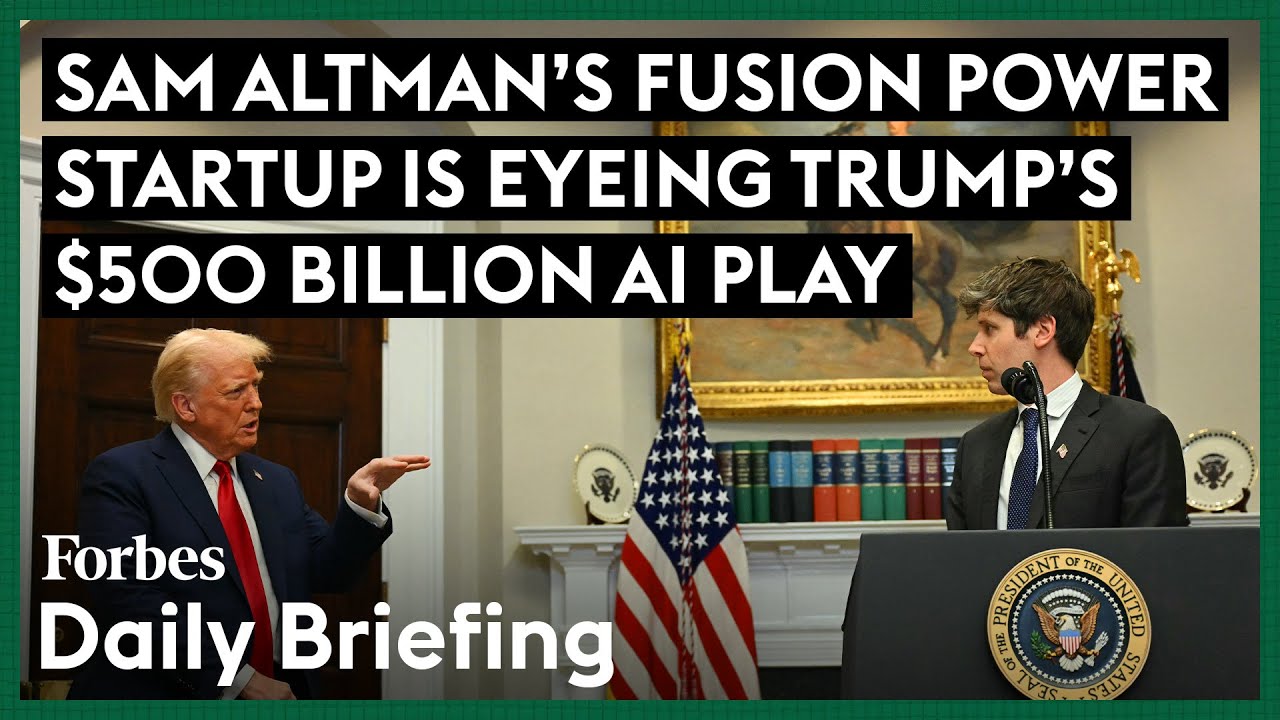Sam Altman’s fusion power startup, Helion, is gearing up to support President Trump’s $500 billion AI initiative, Stargate, which requires substantial energy for its data centers. Despite skepticism about the project’s feasibility and the timeline for Helion’s fusion reactor, the company aims to provide clean, industrial-scale power to meet the growing energy demands of AI infrastructure.
Sam Altman’s fusion power startup, Helion, is positioning itself to support President Trump’s ambitious $500 billion AI initiative, known as Stargate. This initiative aims to secure American AI supremacy and will require a significant amount of energy to power its massive data centers. Helion recently raised $425 million in funding, primarily from SoftBank and Altman himself, who has invested a total of $375 million in the company. As the chairman of Helion, Altman is heavily invested in the success of this fusion energy venture, which aims to provide clean, industrial-scale power.
Stargate, which is backed by major technology partners including Microsoft, OpenAI, and SoftBank, is designed to create a robust AI infrastructure. Microsoft has already contracted with Helion for a fusion power plant expected to be operational by 2028, although this timeline has raised skepticism among physicists. OpenAI has also issued a call for proposals for large power footprints in the U.S. to support the Stargate project, indicating the urgency of securing energy sources for this massive undertaking.
Despite the ambitious goals of Stargate, the project has faced challenges, including skepticism from industry figures like Elon Musk, who questioned the financial viability of the initiative. Additionally, the emergence of a powerful open-source AI model from a lesser-known Chinese startup has raised doubts about the necessity of such a large-scale project. The increasing demand for energy to support data centers, particularly in light of the already strained American power grid, adds to the urgency of finding reliable energy solutions.
Helion, which has been in operation for 12 years without generating revenue, aims to develop a fusion reactor that can produce carbon-free and nearly limitless energy. The company is one of several in the race to achieve practical fusion energy, alongside others backed by notable investors like Bill Gates. However, experts suggest that it may take at least a decade before any of these companies can reliably deliver fusion energy to the grid.
Helion’s current prototype, Polaris, is operational and undergoing testing, with the company claiming it could be the first to generate electricity from fusion. However, the specifics of how Helion plans to scale its technology and meet the energy demands of Stargate remain unclear. As the project progresses, the intersection of AI and fusion energy will be closely watched, with significant implications for both industries.
